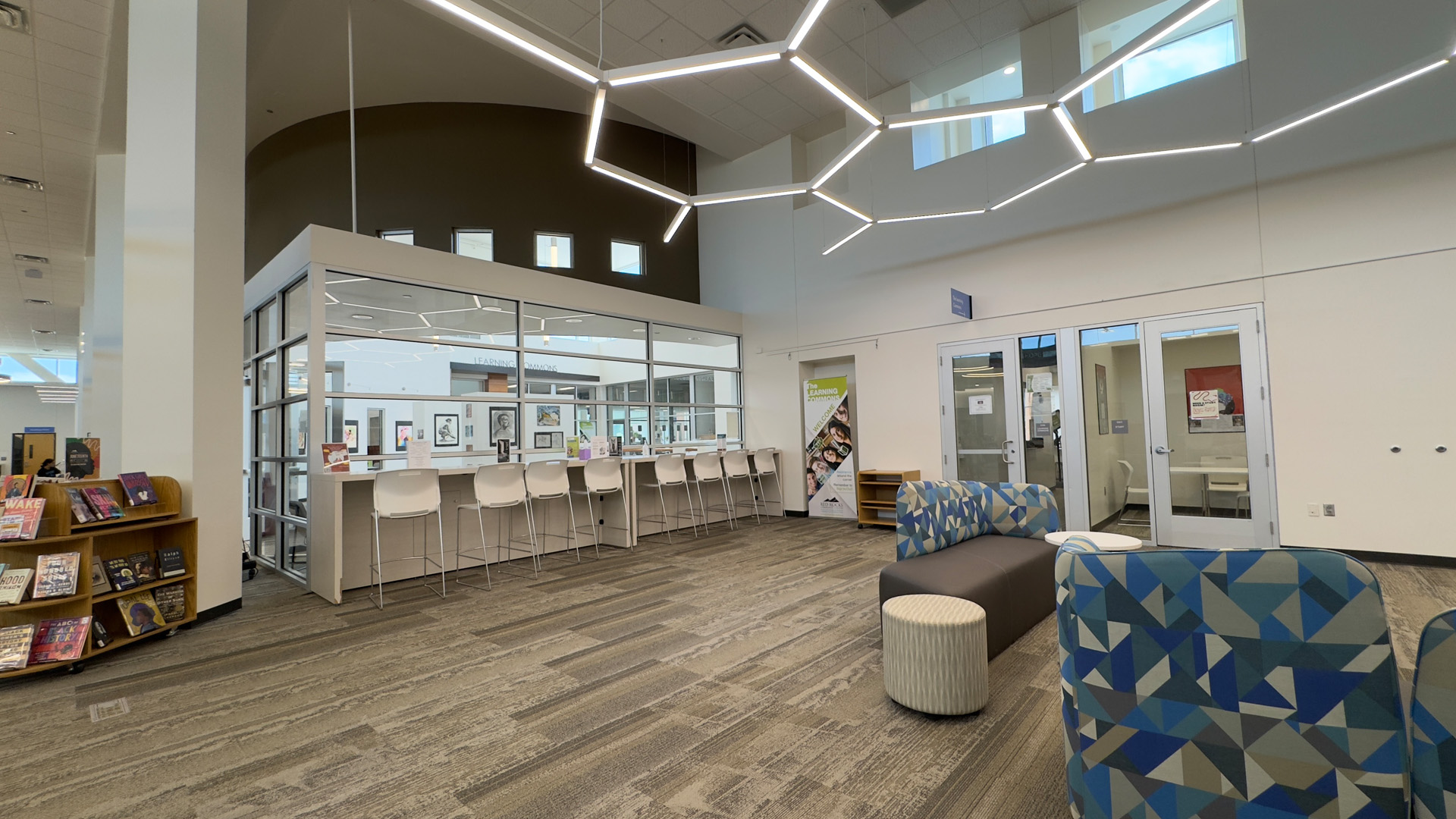
Comm Lab
The Communication Lab, located at the Lakewood Campus in Room 2264 (upstairs in the Library), is designed to tutor students across the curriculum in all stages of oral presentations.
Students can receive help with:
Additionally, students have the opportunity to record their presentations in our rehearsal studio and receive tutor feedback. Students can also learn techniques for controlling public speaking anxiety.
For more information please contact the Learning Commons at 303.914.6705, or Tracey Mahoney, tracey.mahoney@rrcc.edu, (303) 914-6234
Closed: Monday, 1 September, Labor Day
Closed: Tuesday, 21 October, Development Day
Closed: Monday, 24 November – Friday, 28 November, Fall Break
MONDAY
10:00 am – 2:00 pm | REMOTE ONLY
2:00 pm – 6:00 pm | IN PERSON (with remote option for students)
TUESDAY
10:00 am – 3:30 pm | IN PERSON (with remote option for students)
3:30 pm – 6:30 pm | REMOTE ONLY
WEDNESDAY
10:00 am – 3:30 pm | REMOTE ONLY
3:30 pm – 7:30 pm | IN PERSON (with remote option for students)
THURSDAY
11:00 am – 5:00 pm | IN PERSON (with remote option for students)
FRIDAYS
10:00 am – 2:00 pm | IN PERSON (with remote option for students)
All Communication Lab Appointments Should Be Scheduled Through Navigate.
If you scheduled an IN-PERSON appointment:
Please meet with the tutor in the Communication Lab - Room 2264, inside the Library on the Lakewood Campus.
If you scheduled a VIRTUAL appointment:
Please log into the virtual Zoom meeting at the designated meeting time using the following link:
https://us02web.zoom.us/j/89722695407
Meeting ID: 897 2269 5407
Choosing a topic can be a struggle for some students. Speech topics can be generated in a few different ways. Here are some suggestions to get you thinking:
Personal interests – Think hobbies, career goals, and knowledge.
Audience interests – What topics currently impact your audience?
Occasion – Is there a holiday or event that is important happening around your speaking date?
Research – Watching some kind of news program or reading online news, newspapers, magazines etc. can be a great start!
The way you approach your speech topic will vary depending on your audience. Two basic elements to consider are:
Demographics – Age, gender, ethnicity, education level, religious affiliation, economic status, group membership, sexual orientation, etc. are all elements to take into consideration when speaking. For example, you will have to connect differently to an audience of 18-25 year olds when speaking about retirement benefits than you would an audience of 50-65 year olds.
Psychographics – Audience characteristics such as values, beliefs, attitudes, and behaviors are key considerations when speaking.
A good speech needs a clear organizational pattern for your audience to follow. Effective speeches have a clear introduction, body and conclusion.
For some speech assignments, you may be able to pull from your own personal experience to begin content development. For many assignments, however, research is the key to identifying strong speech content. The RRCC Library online databases are a great place to find quality sources. We have subscriptions to multiple scholarly databases to put you on the road to research success. Learn more at Library Services.
You can plagiarize a speech the same way you can plagiarize a paper! You need to include verbal source citations in research-based speeches.
One of the biggest challenges to delivering an effective presentation for many speakers is nervousness and anxiety. Click here to get a quick list of the top 10 ways to reduce nervousness when speaking.
There are many elements to successful speech delivery. Here are a few key elements to keep in mind:
Don't overlook one of the most important steps in the speech making process - evaluation.
As an audience-centered speaker, it's important to remember the meaning is in the receiver.
Don't forget to utilize these departments around campus when planning your presentation: